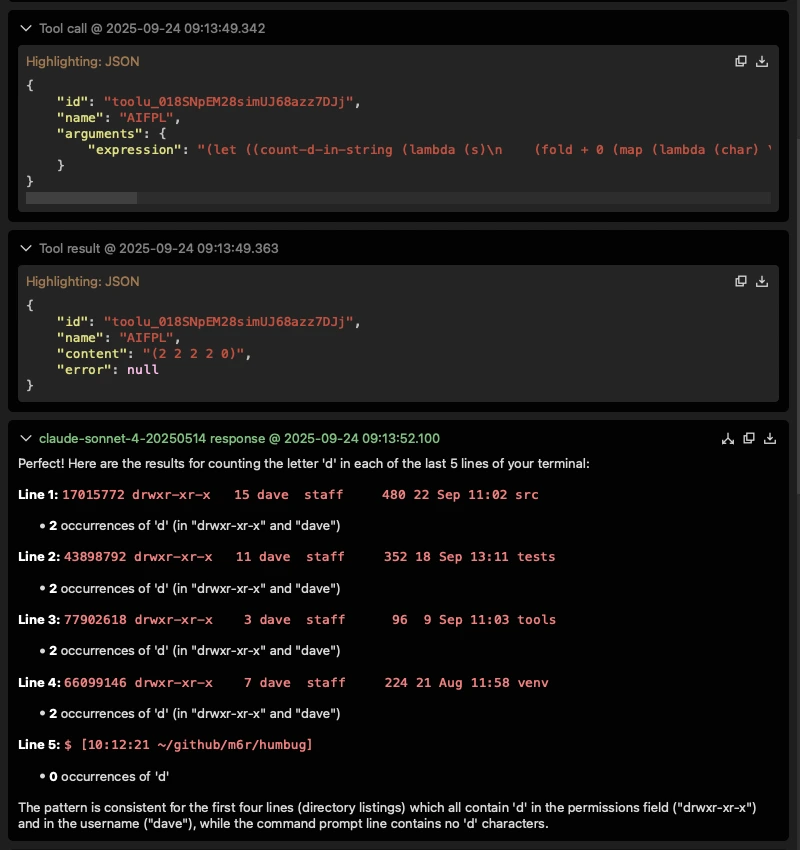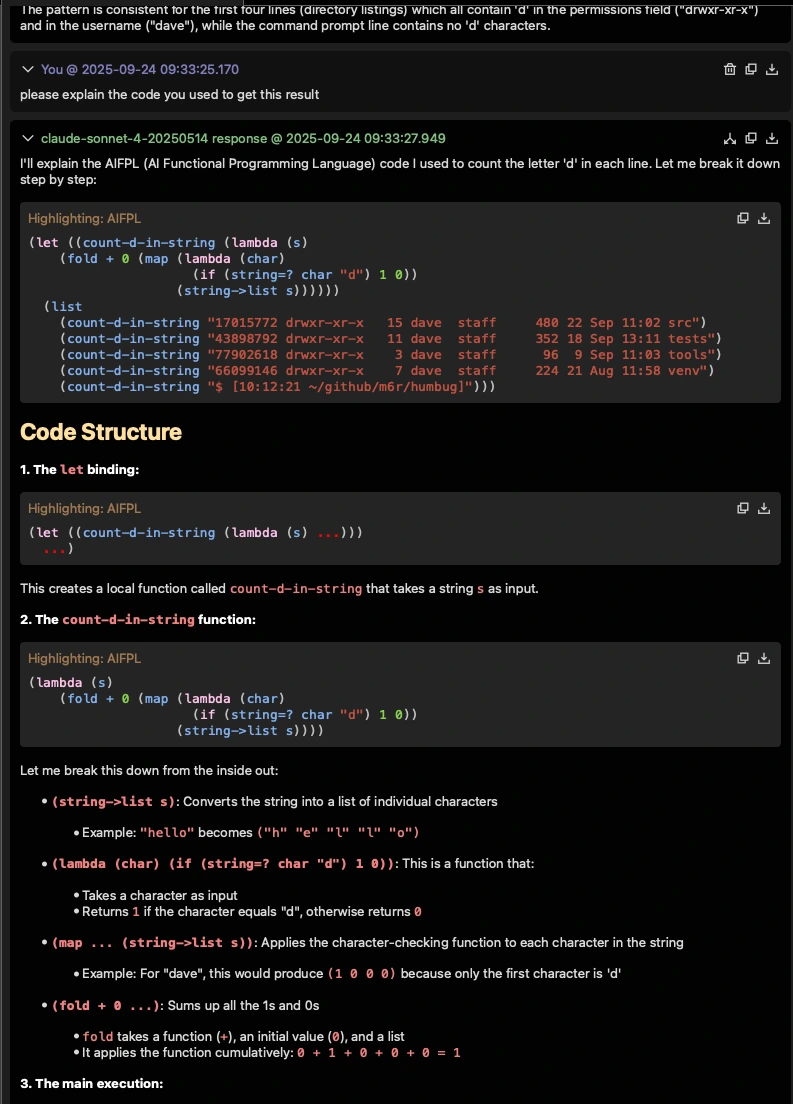LLMs are famously bad at counting letters in text. They're not very good at complicated maths, either, but they are pretty good at writing programs that can do these things. If they have tools available, they sometimes resort to writing Python scripts to do this sort of work, but those risk the AI doing weird or potentially dangerous things. If we could give them a safe programming environment, however, that would be pretty awesome.
For a long time I've wanted to build a pure functional programming language because I could see a lot of uses for it. For LLMs, though, this would offer the safety I had in mind. The language can be very expressive but sandboxed. It doesn't need access to filesystems or networks, for example. Instead, it can rely on the LLM setting up any inputs and interpreting the outputs.
Previously, I've put off trying to build this because it would have taken months to get everything I wanted. Now, of course, I could use an LLM to help me build this (Claude Sonnet).
Another interesting idea was to see if I could also use the LLM as a sounding board to ensure the language had the features it would want to use. In the end, 90%+ of the work in designing, building, refactoring, refining, writing tests, etc., was done by talking with the AI and having it do the actual work.
So one week on, I now have a Lisp-inspired higher-order functional programming language (it's called AIFPL), a tool description and it's integrated into my open-source dev environment.
Now for the magical part! The LLMs can now write code in this language to solve problems.
Here's a test prompt: "I have a terminal open - please look at the last 5 lines of text in it and tell me how many times the letter d appears in each line".

It had to do a little unprompted working around the problem (I'm running Sonnet in a non-thinking mode), but after 35 seconds we got to this:

And for a bonus, it then explains what it did:

So there we go - my theory got some validation. The AI can now use the language it helped me build to write code that answers a non-programming question!
If you're interested, the code is all open source. The AIFPL code is currently on a v0.26 branch but will merge later this week: https://github.com/m6r-ai/humbug.